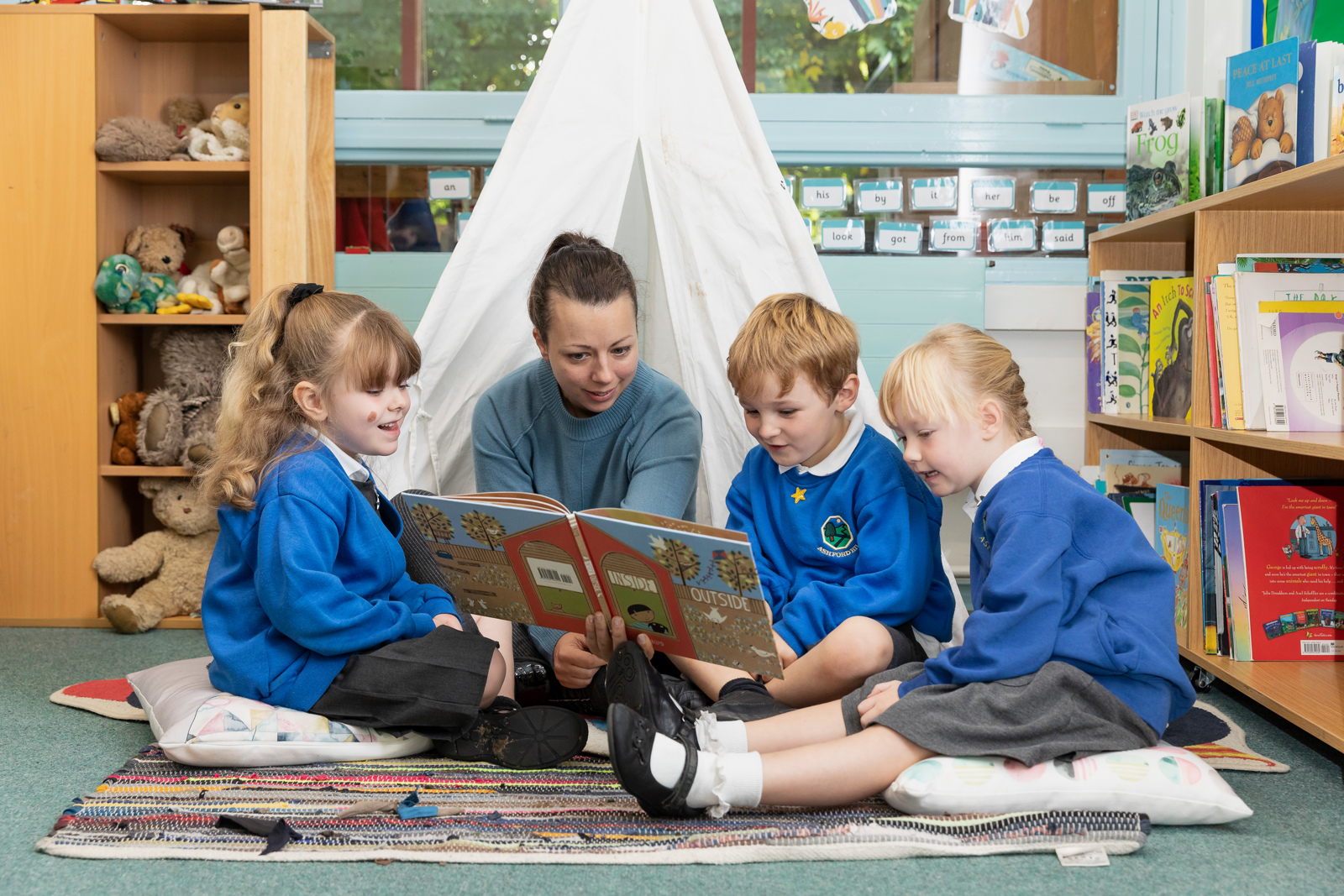Mathematics
Intent
At Ashford Hill we believe that mathematics is not just about doing pages of calculations and ploughing through textbooks. It is about sharing ideas, solving problems, exploring and making connections within the fascinating web that is mathematics.
We want children to grow a love for mathematics and develop an understanding of its importance for them, both now and in the future.

In line with the national curriculum, our aims are that all pupils:
- become fluent in the fundamentals of mathematics, including through varied and frequent practice with increasingly complex problems over time, so that pupils develop conceptual understanding and the ability to recall and apply knowledge rapidly and accurately.
- reason mathematically by following a line of enquiry, conjecturing relationships and generalisations, and developing an argument, justification or proof using mathematical language.
- can solve problems by applying their mathematics to a variety of routine and non-routine problems with increasing sophistication, including breaking down problems into a series of simpler steps and persevering in seeking solutions
We aim for all of our children to use their knowledge and skills that they have gained through our well sequenced mathematics curriculum to gain confidence while dealing with real life mathematical challenges throughout their lives and to enable them to succeed in their next stages of education.
Implementation
At Ashford Hill, we follow a mastery approach to teaching mathematics. We use the National Curriculum, Department for Education (DFE) ready to progress guidance and the National Centre OF Excellence in Teaching Mathematics (NCETM) Curriculum prioritisation framework to sequence our curriculum. This is supported by White Rose Maths, which promotes depth of understanding through carefully designed questions to build upon pupil’s reasoning skills. Across our curriculum, the learning is broken down into small, manageable steps which supports progress for all pupils. Our expectation is that the majority of pupils will move through the learning at broadly the same pace.
Since working with the NEHS Maths Hub, we use the NCETM’s five big ideas of Coherence; Representation and Structure; Fluency; Variation and Mathematical Thinking to enable coherent learning progression throughout the curriculum. This involves careful choice of representations and exposing structures in lessons, including the use of concrete manipulatives where appropriate. At Ashford Hill we promote mathematical thinking by making connections and looking for patterns and relationships, which pupils express through precise mathematical language.

Children are taught mathematics daily in all year groups. To ensure that our children are given a strong start from the Early Years, we teach the NCETM Mastering Number Programme from the very start of year R through to the end of Key Stage 1. Known facts and stem sentences are used all the way through Ashford Hill to ensure that children have a strong foundation in known facts and are able to apply them appropriately in their problem-solving and reasoning.
Intervention
Sometimes children may require intervention to keep up with their peers - this is provided through the Numberstacks programme where children have significant gaps. We adopt a 'keep up' approach rather than a 'catch up' approach and we achieve this through small stepped and deliberately planned lessons. Children are taught in single year groups and currently, in key stage 2, every week includes an arithmetic lesson to secure gaps in the knowledge of our older children.
Times Tables
Times tables are fundamental to support children's calculation and problem solving skills in mathematics - we teach tables through conceptual understanding methods (which enables children to derive facts from known facts) and also through a more traditional rote style of teaching to ensure that children have rapid recall of these facts. This is also supported by the use of Times Table Rockstars for homework from Year 2 to year 6.
Impact
The impact of the teaching of mathematics at Ashford Hill will be frequently monitored and assessed through:
- Live Assesment for Learning in lessons by teaching staff and learning support staff.
- PiXL assessments are conducted in Key Stage 1 and Key Stage 2 termly - this informs of both attainment and progress. Teachers then adapt teaching and lessons to ensure that any gaps are revisited.
- Regular pupil voice interviews inform us as to how our children feel about maths and help to inform our future teaching and CPD programmes.
- Frequent coaching of teaching staff will take place to support and develop the high-quality teaching of mathematics at Ashford Hill Primary.
- Government statutory tests will be carried out with all children in the summer term for year 6 children. We will also test year 2 children with government prepared papers in the summer term.




